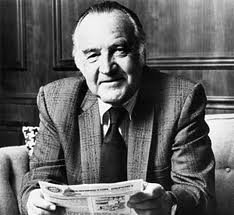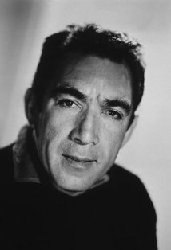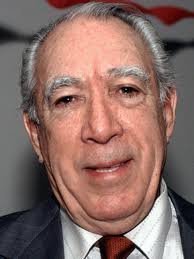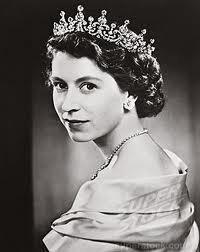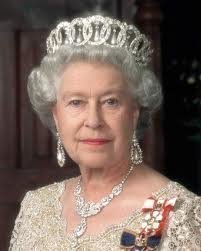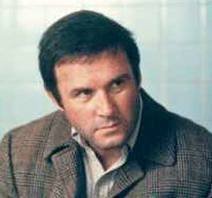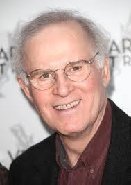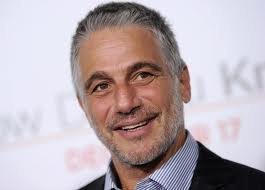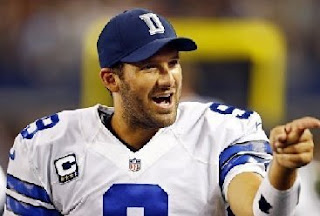Massachusetts (/ˌmæsəˈtʃuːsɪts/ ⓘ MASS-ə-CHOO-sits, /-zɪts/ -zits; Massachusett: Muhsachuweesut [məhswatʃəwiːsət]), officially the Commonwealth of Massachusetts, is a state in the New England region of the Northeastern United States. It borders the Atlantic Ocean and Gulf of Maine to its east, Connecticut and Rhode Island to its south, New Hampshire and Vermont to its north, and New York to its west. Massachusetts is the sixth-smallest state by land area. With over seven million residents as of 2020, it is the most populous state in New England, the 16th-most-populous in the country, and the third-most densely populated, after New Jersey and Rhode Island.
The state's capital and most populous city, as well as its cultural and financial center, is Boston. Other major cities are Worcester, Springfield and Cambridge. Massachusetts is also home to the urban core of Greater Boston, the largest metropolitan area in New England and a region profoundly influential upon American history, academia, and the research economy. Originally dependent on agriculture, fishing, and trade, Massachusetts was transformed into a manufacturing center during the Industrial Revolution. During the 20th century, the state's economy shifted from manufacturing to services; and in the 21st century, Massachusetts has become the global leader in biotechnology, and also excels in artificial intelligence, engineering, higher education, finance, and maritime trade.
Massachusetts was a site of early English colonization. The Plymouth Colony was founded in 1620 by the Pilgrims of the Mayflower. In 1630, the Massachusetts Bay Colony, taking its name from the Indigenous Massachusett people, also established settlements in Boston and Salem. In 1692, the town of Salem and surrounding areas experienced one of America's most infamous cases of mass hysteria, the Salem witch trials. In the late 18th century, Boston became known as the "Cradle of Liberty" for the agitation there that later led to the American Revolution. In 1777, General Henry Knox founded the Springfield Armory, which, during the Industrial Revolution, catalyzed numerous important technological advances, including interchangeable parts. In 1786, Shays' Rebellion, a populist revolt led by disaffected American Revolutionary War veterans, influenced the United States Constitutional Convention. In the 18th century, the Protestant First Great Awakening, which swept Britain and the Thirteen Colonies, originated from the pulpit of Northampton preacher Jonathan Edwards.
^Salem
Massachusetts has played a powerful scientific, commercial, and cultural role in U.S. history. Before the American Civil War, the state was a center for the abolitionist, temperance, and transcendentalist movements. In the late 19th century, the sports of basketball and volleyball were invented in the western Massachusetts cities of Springfield and Holyoke, respectively. Massachusetts has a reputation for social and political progressivism; becoming the only U.S. state with a right to shelter law, and the first U.S. state, and one of the earliest jurisdictions in the world, to legally recognize same-sex marriage. Boston is considered a hub of LGBT culture and activism in the United States. Prominent American political dynasties have hailed from the state, including the Adams and Kennedy families.
Harvard University in Cambridge is the oldest institution of higher learning in the United States, with the largest financial endowment of any university in the world. The university has educated eight U.S. Presidents, while Harvard Law School has educated a contemporaneous majority of Justices of the U.S. Supreme Court. Kendall Square in Cambridge has been called "the most innovative square mile on the planet" for producing high concentrations of entrepreneurial start-ups and quality innovations since 2010. Both Harvard and MIT, also in Cambridge, are perennially ranked as either the most or among the most highly regarded academic institutions in the world. Massachusetts's public-school students place among the top tier in the world in academic performance.
Massachusetts is the most educated and one of the most highly developed and wealthiest U.S. states, ranking first in the percentage of population 25 and over with either a bachelor's degree or advanced degree, first on both the American Human Development Index and the standard Human Development Index, first in per capita income, and as of 2023, first in median income. Consequently, Massachusetts typically ranks as the top U.S. state, as well as the most expensive state for residents to live.
Etymology
The Massachusetts Bay Colony was named after the Indigenous population, the Massachusett or Muhsachuweesut, whose name likely derived from a Wôpanâak word muswachasut, segmented as mus(ây) "big" + wach "mountain" + -s "diminutive" + -ut "locative". This word has been translated as "near the great hill", "by the blue hills", "at the little big hill", or "at the range of hills", in reference to the Blue Hills—namely, the Great Blue Hill, located on the boundary of Milton and Canton. Massachusett has also been represented as Moswetuset. This comes from the name of the Moswetuset Hummock (meaning "hill shaped like an arrowhead") in Quincy, where Plymouth Colony commander Myles Standish (a hired English military officer) and Squanto (a member of the Patuxet band of the Wamponoag people, who have since died off due to contagious disease brought by colonizers) met Chief Chickatawbut in 1621.
Pre-colonization
Massachusetts was originally inhabited by tribes of the Algonquian language family, including Wampanoag, Narragansett, Nipmuc, Pocomtuc, Mahican, and Massachusett. While cultivation of crops like squash and corn were an important part of their diet, the people of these tribes hunted, fished, and searched the forest for most of their food. Villagers lived in lodges called wigwams as well as longhouses. Tribes were led by male or female elders known as sachems.
Colonial period
In the early 1600s, European colonizers caused virgin soil epidemics such as smallpox, measles, influenza, and perhaps leptospirosis in what is now known as the northeastern region of the United States. Between 1617 and 1619, what was most likely smallpox killed approximately 90% of the Massachusetts Bay Native Americans.
The first English colonizers in Massachusetts Bay Colony landed with Richard Vines and wintered over in Biddeford Pool near Cape Porpoise (after 1820 the State of Maine) in 1616. The Puritans, arrived at Plymouth in 1620. This was the second permanent English colony in the part of North America that later became the United States, after the Jamestown Colony. The "First Thanksgiving" was celebrated by the Puritans after their first harvest in the "New World" and lasted for three days. They were soon followed by other Puritans, who colonized the Massachusetts Bay Colony—now known as Boston—in 1630.
If you want to read a lot more, go here: https://en.wikipedia.org/wiki/Massachusetts
- SERVES
- 4
- COOK TIME
- 15 Min
Most every Southern coastal town has loads of fresh shrimp available, and with frying being a favorite regional preparation, our Perfect Fried Shrimp recipe proves that the two go hand in hand!
- 3/4 cup all-purpose flour
- 1 tablespoon baking powder
- 1 teaspoon salt
- 1 teaspoon cayenne pepper
- 2 eggs
- 1/4 cup milk
- 1/2 cup vegetable oil
- 1 1/2 pound large shrimp, peeled and deveined, with tails left on
- In a shallow dish, combine flour, baking powder, salt, and cayenne pepper; mix well. In another shallow dish, beat eggs and milk with a fork until well combined.
- In a large skillet over medium-high, heat oil until hot.
- Dip shrimp in flour mixture, then egg mixture, and again in flour mixture, coating completely.
- Cook shrimp about 1 minute per side, or until coating is golden. Drain on a paper towel-lined platter. Serve immediately.
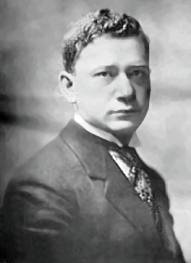
1980 – Tony Romo, American football player
Each year on April 21st, National Kindergarten Day honors the birthday of the man who started the first Kindergarten. Friedrich Wilhelm August Fröbel (April 21, 1782 – June 21, 1852) is credited with starting the very first Kindergarten in Germany in 1837. Frobel was a German teacher and a student of Johann Pestalozzi. Frobel laid a foundation for modern education, recognizing that children learn through play and experience.
The first kindergarten (which means garden for the children) was developed in Blankenburg, Germany, in 1837. The kindergarten fostered Frobel’s social experience for children. It also allowed them to smoothly transition from home to school.
Eventually, the Prussian government banned Frobel’s unorthodox methods. However, the rest of the world was eager to accept Frobel’s idea of kindergarten, including the United States.
In 1856, Watertown, Wisconsin, opened the first kindergarten in the United States. Founded by Margarethe Schurz, this kindergarten was a German-language class, as were many in this region. Kindergarten found its way into private English-speaking institutions across the country. However, it wasn’t until 1873 that it became part of any public school system.
National Kindergarten Day offers an opportunity to thank a kindergarten teacher you know. There are several ways to celebrate the day, too!
HOW TO OBSERVE
- Recognize an outstanding kindergarten teacher.
- Explore a career in elementary education, specifically as a kindergarten teacher.
- Learn more about elementary education.
- Donate to a teacher’s supply fund.
-
- Share your experiences as a kindergarten teacher.
- Invite families to see how today’s students learn.
- Spend a day in a classroom.
NATIONAL KINDERGARTEN DAY HISTORY
National Kindergarten Day honors the day Friedrich Wilhelm August Fröbel was born on April 21, 1782. However, we were unable to identify the founder of National Kindergarten Day.
Kindergarten FAQ
Q. Do kindergarten classes run half days or full days?
A. Most kindergarten classes today operate full days five days per week. However, in the past, the programs ran half days.
Q. How old are children when they begin kindergarten?
A. Most children begin kindergarten the year they turn five. However, children who are born later in the year often wait until the following year to begin. Schools provide parents with age guidelines.







